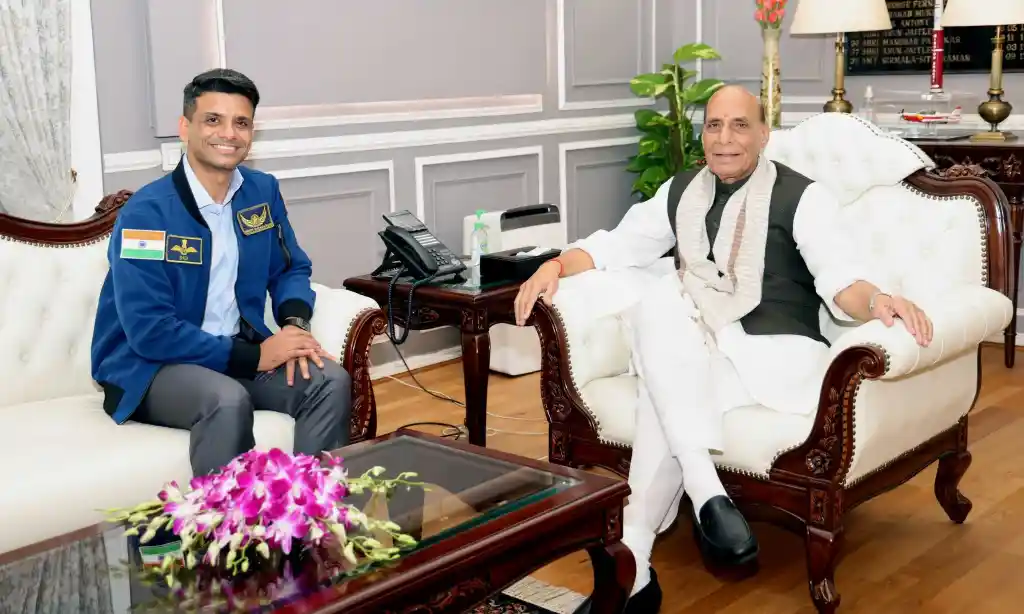Group Captain Shubhanshu Shukla’s inspiring journey as the first Indian astronaut to visit the International Space Station (ISS) is being hailed as a defining moment for India’s space program — one that will motivate a new generation of young Indians to explore careers in science, space, and technology.

Defence Minister Rajnath Singh, who met Shukla on Thursday, described the achievement as a “major milestone” in India’s human spaceflight ambitions. He lauded Shukla’s scientific contributions aboard the ISS, which included conducting critical experiments in microgravity, and expressed optimism that such missions would accelerate India’s Gaganyaan project, scheduled for 2027.
During their meeting, the two discussed the mission’s significance, the technologies deployed, and its impact on India’s space aspirations. Singh also praised the Indian Air Force’s role in astronaut selection, training, and mission support, calling the professionalism and dedication of IAF personnel a cornerstone of India’s manned space efforts.
At a press conference following his return to Earth on July 15, Shukla reflected on the deeper meaning of spaceflight, noting that the experience yielded intangible insights crucial for future manned missions. He recalled interactions with children during orbital Q&A sessions, remarking that their curiosity highlighted how accessible space can feel: “If I can go to space, anyone can.”
The mission’s data — over 12,000 pages of documentation on microgravity effects and plant adaptation — is currently under analysis by Indian scientists. ISRO Chairman V. Narayanan confirmed the mission as a “100% success”.
Shukla’s emotional account of seeing Earth from space, where borders disappeared and planetary unity stood out, struck a chord with many. His colleague and backup astronaut, Group Captain Prashant Balakrishnan Nair, compared their bond to that of “Lakshman and Ram,” celebrating the mission as a collective Indian triumph born out of camaraderie and shared consciousness.
